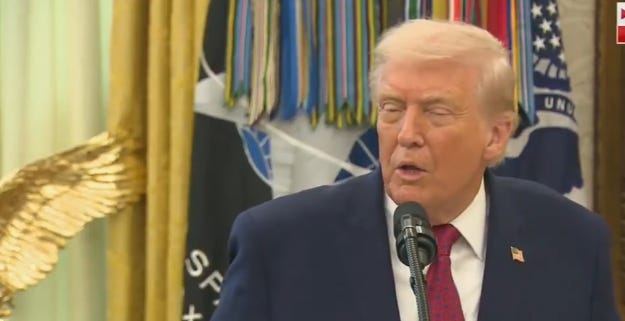Some critics have already argued that The Long Walk, the new film based on an old Stephen King novel, is a metaphor for the brutal chains of capitalism.
You can sort of see why: It's a story about young men picked from a lottery to go on a long, apparently televised walk. If they stop too often or for too long, they die. The last one standing wins a prize—cash, plus a granted wish. An opening text explains that the walk is understood as an opportunity to escape economic deprivation. An overseer explains that the walk provides a boost to national productivity, a boost to gross domestic product. Early in the walk, the boys dismiss the idea that they are there by choice. In theory, the lottery is optional. But they don't know anyone who hasn't signed up. Capitalism, in this metaphorical schema, is a cruel taskmaster that provides the illusion of free will and demands that young men march forever toward their pointless, inevitable deaths.
But the movie is at least as much a brief against government power as it is a critique of the market. Over and over again, the movie makes clear that the boys marching towards their end aren't doing so at the behest of corporations or private actors, but a cruel and autocratic public authority. It's a harrowing take on the horrors of an authoritarian state.
The film's villain is an unnamed military official, the Major, played with gruff sadism by Mark Hamill. As the boys begin their walk, he leads them in a ritualized recital that begins, "We give thanks for the state." Over time, we learn that this apocalyptic America is recovering from a war, and that it has become repressive and authoritarian, with art and free expression heavily censored under penalty of death. The hero's father, it turns out, was killed for reading books and engaging with art, culture, and ideas that were deemed off-limits by the government. Before he is gunned down in front of his home, the Major gives him an opportunity to live—if only he will "pledge allegiance to the state" and all that it stands for.
The Long Walk was directed by Francis Lawrence, who helmed three of the four Hunger Games films. Like that series, the movie is a not-so-thinly-veiled, high-concept riff on the travails of young strivers forced to compete in horrific games for the amusement of society. And, like that series, it's been reinterpreted as an attack on systems of commerce and capitalism, when the much more straightforward reading is that it's about an oppressive government.
Arguably, the best reading is even more specific than that: It's about Vietnam, and the nihilistic terrors inflicted by the draft. King's 1979 story was written years earlier, when he was precociously young and the Vietnam War was still fresh on the minds of the American public. In both King's book and Lawrence's adaptation, the story closely mirrors Vietnam-era anxieties, with a mostly inescapable lottery system that forces young men to band together and then slog to their demise against the backdrop of an expensive war.
Indeed, Lawrence's film emphasizes the Vietnam metaphor to an almost surprising degree. He puts the boys in clothing that feels ripped from the 70s, and stages sequences—like an uphill portion of the walk where many of the boys die in what plays like a metaphorical reimagining of some pointless uphill assault—that call to mind the specific horrors of that war far more than contemporary anticapitalist gripes.
Another way to look at the film, with its nearly all-male cast, is as a lament about the burden on boys and men and the ways in which they have been cast as sacrificial fodder for society. They are randomly thrown together and asked to bear the collective weight of war and economic devastation through sheer physical exertion. The bonds they create are fleeting and tragic. Society has no use for them except to march them to their deaths.
Or maybe the lesson is that every generation has its despair, its looming sense of pointless struggle, its crisis of meaning. There's a sort of all-purpose nihilism lurking beneath the surface of the film, despite a somewhat more hopeful ending than the one found in King's book, that applies more broadly than any single historical parallel. From Vietnam to the Iraq War to the Great Recession to the pandemic, it's always a long walk, no matter when you start.
The post <i>The Long Walk</i> Is a Harrowing Take on State Power appeared first on Reason.com.













 Bengali (Bangladesh) ·
Bengali (Bangladesh) ·  English (United States) ·
English (United States) ·